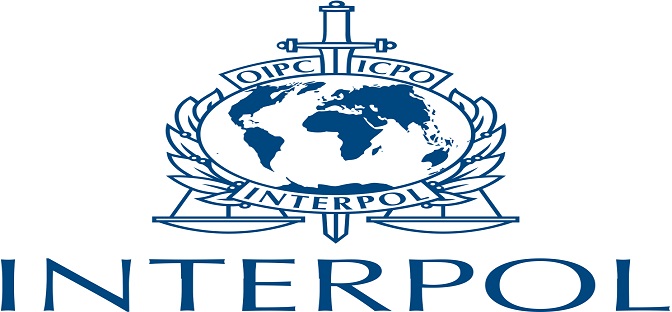News
Flying On the Wings of Nigeria

Recently I had to take a trip to the United Kingdom and was faced with the challenge of which airline to fly based on my schedule and pricing. Eventually, largely swayed by the renewed sentiment of ‘Buy Nigeria, I settle for Arik Airline, the self-professed ‘Wings of Nigeria’.
I looked forward to the flight experience even though I had once flown the airline on the same route many years ago. But at that time I was unable to critically assess it as it had just launched its UK route and in a group that distracted me severely. But on this occasion,
I was thankfully alone. My friends who believe I know everyone will have been shocked to find out that I only recognized two people in my cabin of choice.
This is in contrast to what happens on my regular airline where I often know the larger portion of the cabin, plus ground and cabin crew for good measure.
Our outward journey started late due to the fact that the flight had to be combined with that of another indigenous airline that had been cancelled for operational reasons.
Despite that, the flight was uneventful. I found the cabin space rather generous, the staff courteous and a wide choice of entertainment options both local and international.
The cuisine was not very appealing to me even though I am not a big fan of airline food. This is however not to say it cannot be significantly improved upon.
The return leg left dead on time. This time I checked in online which I was unable to do on my outward journey. Not only that, the flight landed in Lagos at 3.40 am, a forty good minutes ahead of schedule. Quite unbelievable for Arik that had gained notoriety for being abysmally late on its local flights.
This advantage was however masked by the lack of on-board entertainment and vanity kits for those in business class.
Barring these hitches, it was a good experience for me, the biggest plus being that I was able to avoid the Murtala Mohammed International Airport during the highly riotous hours of 6-10pm.
However, Arik still has a long way to go if it intends to compete with international airlines. There can be no Nigerian standards. It has to be global. While the airline has a lot to do in this area, it has even more work to do in terms of brand essence, appeal and likeability. These are seriously lacking.
Being the nearest thing to our national carrier, its brand conversation is relatively weak. The experience of United Kingdom starts once you step on a British Airways flight ditto for Virgin Atlantic and many other foreign airlines.
Beyond its tagline, Arik fails to strongly communicate Brand Nigeria in costume, imagery or otherwise. Why any of our traditional attires can’t be proudly infused into the crew’s attire? eg.
Caps adorned with aso oke which is uniquely ours. If that was the aim of the printed blouses won by the female staff, then in my opinion, it is a very weak and uninspiring one.
Another unique platform to strongly communicate Brand Nigeria is completely lost by Arik not having its own business class lounge. Rather it shares one with several other international airlines even in its own home country!
Furthermore, Arik is not doing enough reaching out to its primary target Nigerians. Beyond mere advertising, we should see more of the airline in various aspects of our national life like entertainment, sports, business, tourism, economy etc.
There are creative ways of weaving the brand into the fabric of the nation. A significant vacuum exists in its sector that can be taken advantage of as a key mover of the Nigerian economy.
Arik cannot afford to sit on the fence. It must strongly join in the conversation of nation-building as part of its reputation management strategy. Perhaps, the airline is too busy coping with core issues of operations leaving the ‘mundane’ one of brand communication to just a desk. If that is the case, then it is not the way to go in building a sustainable brand. Arik must not only make its brand more appealing, but in doing so, it must constantly think out of the box! Presently the brand lacks character beyond its functionality.
The government of the day must also line up behind our national brands like Arik. What a morale booster it will be if President Muhammadu Buhari or his deputy Professor Yemi Osinbajo leads a large Nigerian business delegation to the United Kingdom and all of them fly Arik.
This will surely send a strong message to Nigerians that we must own and support our own. Government must also encourage its staff to ‘Fly Nigeria First!’ Otherwise, the government risks the possibility of appearing insincere in its call for us all to ‘buy Nigeria’.
The government can still go further by supporting the indigenous aviation sector. Buoyed by the potential of flying 180 million people, we cannot stand by and watch foreign airlines take the lion-share of this market leaving us with miserable crumbs. Government must facilitate low interest loans and facilities that will oil the sector.
Anybody that has collected and diverted previous disbursements from the Aviation Intervention Fund must be investigated and swiftly brought to book. Such people must be dealt with as national economic saboteurs. I also counter any idea of the government launching a national carrier as history has shown that government business is not in business!
I will encourage all Nigerians especially frequent flyers, to start by committing a certain portion of their portfolio to flying indigenous airlines like Arik on their intercontinental trips.
The advantages of this as earlier enumerated are quite considerable with Nigeria being the ultimate beneficiary.
Yes I admit, there will be the initial discomfort of adjusting to new standards, but that is the only way we can build our national businesses. After all, ‘if Rome was not built in a day’, why should we expect the ‘wings of Nigeria’ to be.
Yomi Badejo-Okusanya consults in a public relations firm and writes from Lagos, Nigeria.
News
ABoICT Lecture 2026 to Focus on Impact of AI, IoT on Business Operational Efficiency

Board and management of Communication Week Media Limited, publishers of Nigeria CommunicationsWeek, at the weekend announced that this year’s Africa’s Beacon of ICT Merit and Leadership lecture will focus on Impact of AI and IoT on business operational efficiency.

Africa’s Beacon of ICT Merit and Leadership lecture, widely regarded as the most prestigious annual event available in the ICT industry in Nigeria is in its 17th year.
The lecture holds on May 30, 2026 at Oriental Hotel Lekki, Lagos, according Ken Nwogbo, editor-in-chief of
Nigeria CommunicationsWeek the organizers of the event.
He said that this year’s event “is digital transformation edition” to recognise and celebrate organizations and individuals in the ICT industry that have impacted in digital transformation of the economy.
“Most of these organizations and individuals have consistently being voted by our readers as leaders in their areas of operations and we have decided to reward them in this special edition, tag: ‘Digital Transformation Edition 2026’ he said,”.
He added that, Digital transformation, driven by AI and IoT, will fundamentally boosts business operational efficiency by automating complex tasks, enabling real-time data analysis, and reducing costs.
“IoT technology optimizes resources, predict maintenance needs, and enhance decision- making, allowing companies to streamline workflows and improve productivity across sectors like manufacturing and logistics.
“It is an emerging technology that has impacted lifestyles and has changed the way we think and act, and the way we interact with each other.
It has also changed the way we work as it enables very large-scale monitoring, control, and automation, and has impacted the digital transformation of organizations in different industries”, he said.
According to him, “the transformative power of Artificial Intelligence exists as a bringing force in organizational communication. AI tools perform repetitive jobs, deliver simultaneous translations, and register team communication patterns, which lead to better understanding of group interactions. AI chatbots help manage customer support inquiries thus enabling staff members to dedicate their efforts toward complex work activities”.
The Africa’s Beacon of ICT Merit and Leadership Distinguished (ABoICT Lecture 2026) is designed to explore efforts to put Nigeria on the global Information and Communications Technologies map.
The lecture series however is reserved for distinguished achievers in the ICT sector.
Past lecturers included Dr. Ernest Ndukwe, then executive vice chairman, Nigeria Communications Commission (NCC); Uche Orji, managing director/chief executive officer, Nigeria Sovereign Investment Authority (NSIA); Biodu Omoniyi, Managing Director/CEO, VDT Communications; Ayotunde Coker, former Managing Director, Rack Centre Limited; Prof. Adewale Obadare, chief visionary officer, Digital Encode; Dr. Oluseyi Akindeinde, founder,
Hyperspace & NeuraL AI and John Obaro, CEO and founder of Systemspecs; Prof. Isa Pantanmi, former minister of Communications and Digital Economy; among others.
News
AI-Driven Memory Chip Fuels Global Phone Price Surge

Global technology markets are entering a new phase of strain as surging memory chip prices intensify the ongoing semiconductor shortage. For Nigeria, the ripple effects could translate into a 15 – 20 per cent increase in phone price levels if supply pressures persist into the next quarter.

While attention has largely focused on advanced AI processors, the sharpest escalation is occurring in memory chips, specifically DRAM (Dynamic Random Access Memory) and NAND (Flash Memory), which are essential to smartphones, PCs, and vehicles.
According to Bloomberg data, spot prices for DRAM have surged more than 600 percent in recent months. NAND prices have also climbed as artificial intelligence infrastructure expands global storage demand.
This shift reflects a structural realignment rather than a short-term disruption.
Massive AI infrastructure investments led by hyperscalers such as Amazon have redirected fabrication capacity toward high-bandwidth memory (HBM), a critical component for AI accelerators. This shift has tightened supply for conventional memory used in consumer devices.
Market analysts now describe the situation as a memory “supercycle,” breaking the industry’s traditional boom-and-bust pattern. Historically, memory cycles lasted three to four years. According to Jian Shi Cortesi of GAM Investment Management, the current cycle has already exceeded previous ones “both in length and magnitude,” with little evidence of demand momentum softening.
Financial markets reflect the divide. A Bloomberg gauge of global consumer electronics makers has fallen roughly 10 per cent since late September, while a basket of memory manufacturers has surged about 160 per cent over the same period. Shares of SK Hynix, a key high-bandwidth memory supplier to Nvidia, have climbed more than 150 per cent.
By contrast, downstream manufacturers reliant on affordable memory supplies are under pressure. Nintendo has warned of margin compression linked to shortages. Qualcomm shares declined after signaling memory constraints that could limit phone production. PC makers such as Lenovo and Dell have also retreated from recent peaks amid concerns that rising chip costs could dampen demand.
The divergence underscores a widening gap between component producers and device assemblers.
Memory is central to modern smartphone performance. Higher DRAM and NAND capacities power AI-enabled features, high-resolution imaging, and multitasking capabilities. Rising memory costs, therefore, feed directly into the bill of materials.
Even in a moderate demand environment, a constrained memory supply can limit production volumes. Qualcomm’s recent indication that memory shortages may restrict handset output highlights the risk of scarcity extending beyond price increases into availability challenges.
Compounding the issue, a foundry such as TSMC is prioritising higher-margin AI-related contracts at advanced nodes. Combined with the reallocation of capacity toward high-bandwidth memory, this limits flexibility in supplying traditional mobile processors and storage components.
For Nigeria, the likely outcome is not immediate widespread stockouts, but gradual upward revisions in retail pricing.
Nigeria’s electronics market remains heavily import-dependent, with minimal semiconductor manufacturing capacity. Retailers are therefore exposed to global cost shifts and supply volatility.
Distributors in major commercial hubs such as Lagos’ Computer Village are closely monitoring global trends. Some are securing inventory ahead of anticipated adjustments, while others are maintaining leaner procurement cycles to manage uncertainty.
Duration risk remains a key concern. Fidelity International’s Vivian Pai recently observed that while markets may be pricing in normalization within one to two quarters, industry tightness could persist through the rest of the year. If that proves accurate, manufacturers will have limited room to absorb higher component costs without passing them through to consumers.
Mid-tier smartphones, especially those balancing affordability with competitive performance, are likely to face the greatest pressure. Manufacturers may respond by offering lower base storage variants, delaying feature upgrades, or raising prices incrementally across product lines.
Parallel imports could increase if global scarcity intensifies, potentially raising concerns about warranty coverage and after-sales support.
Globally, firms are attempting to mitigate exposure by locking in long-term supply contracts, raising product prices, or redesigning devices to use less memory. However, semiconductor fabrication is capital-intensive and slow to scale. New fabrication plants require years to build, and expanding high-bandwidth memory output involves complex processes that cannot be rapidly accelerated.
For Nigeria, the episode underscores the importance of strengthening digital resilience. While domestic chip fabrication remains unlikely in the near term, expanding local device assembly, promoting repair ecosystems, and supporting component recycling could help cushion future supply shocks.
If projections hold, Nigerian buyers may begin seeing incremental price adjustments within weeks. Mid-range Android devices are likely to record the most noticeable changes, while premium models, already positioned at higher price points, may see more measured increases.
As it stands, AI’s explosive growth is reshaping semiconductor allocation patterns, and memory, once viewed as a product with prices that rise and fall in cycles, is behaving like a sustained constraint.
The widening gap between stock market winners and losers reflects the magnitude of this transition. As AI infrastructure spending accelerates globally, consumer electronics markets, including Nigeria’s, must adjust to a new cost environment.
Whether the squeeze proves temporary or evolves into a prolonged recalibration will depend on how quickly semiconductor capacity expands. For now, the trajectory suggests continued upward pressure on global electronics pricing, and Nigeria’s phone price expectations may have to adjust accordingly.
News
INTERPOL Arrests 651, Recovers $4.3m from Cybercrime in Nigeria, Others

African law enforcement agencies arrested 651 suspects and recovered over $4.3 million in a joint operation targeting investment fraud, mobile money scams, and fake loan applications.

As INTERPOL revealed on Wednesday, Operation Red Card 2.0 identified 1,247 victims between December 8 and January 30 while targeting cybercrime operations linked to over $45 million in financial losses.
Authorities across 16 countries also seized 2,341 devices and took down 1,442 malicious websites, domains, and servers during this joint action coordinated by the African Joint Operation against Cybercrime (AFJOC).
In Nigeria, police officers dismantled an investment fraud ring that was recruiting young people to run phishing, identity theft, and fake investment schemes, taking down over 1,000 fraudulent social media accounts in the process.
They also arrested six members of a Nigerian cybercrime gang that used stolen employee credentials to breach a major telecom provider.
Kenyan investigators also apprehended 27 suspects while investigating fraud networks that used social media and messaging platforms to lure victims into fake investment schemes.
In Côte d’Ivoire, 58 suspects were arrested as part of a crackdown on predatory mobile loan apps that targeted victims with hidden fees and abusive debt-collection practices.
“These organized cybercriminal syndicates inflict devastating financial and psychological harm on individuals, businesses and entire communities with their false promises,” said Neal Jetton, the head of INTERPOL’s Cybercrime Directorate.
“Operation Red Card highlights the importance of collaboration when combatting transnational cybercrime. I encourage all victims of cybercrime to reach out to law enforcement for help.”
One year ago, African law enforcement arrested another 306 suspects in the first stage of this INTERPOL-led operation targeting cross-border cybercriminal networks.
This is the latest INTERPOL operation targeting African cybercrime, with thousands of arrests and multiple multimillion-dollar operations disrupted or dismantled in recent years, following Operation Serengeti and Operation Africa Cyber Surge.

 Telecom3 days ago
Telecom3 days agoBanks, Telcos Settle Four-Year Dispute over N300Bn USSD Debt

 General News2 days ago
General News2 days agoHow JustMarkets Is Empowering African Traders with Global Market Access

 Telecom2 days ago
Telecom2 days agoGroup Condemns Gabon’s Social Media Shutdown Amid Protests

 E-Financial2 days ago
E-Financial2 days agoACAMB Educates Content Creator to Curb Misinformation on Bank Recapitalisation

 General News3 days ago
General News3 days agoPalmPay Unveils First Batch of Winners in #LoveWithPalmPay Campaign

 E-Business2 days ago
E-Business2 days agoMutual Benefits Assurance Settles ₦5.9bn Claims in January 2026

 E-Financial3 days ago
E-Financial3 days agoFirstCap MD says Payment Security Remains Biggest Barrier to Bankable Gas and Power Projects

 Telecom2 days ago
Telecom2 days agoIXPN Positions as the Regional Internet Exchange Hub for West Africa












